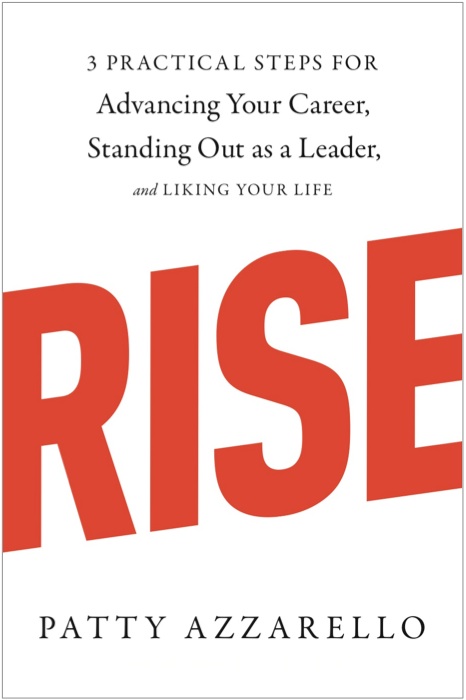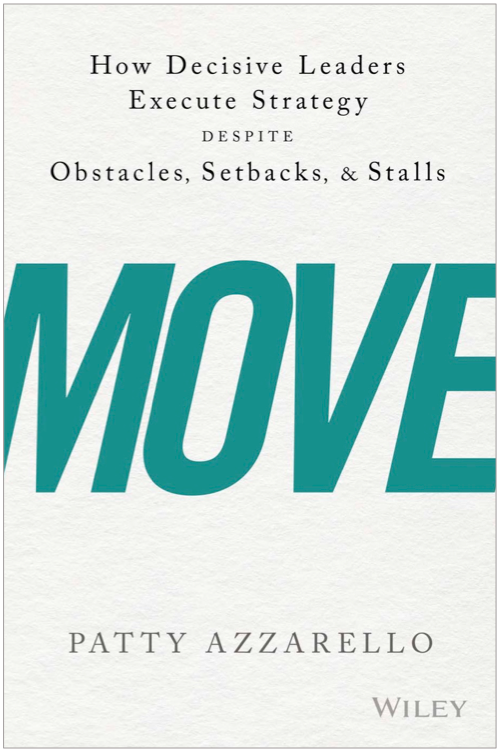 Last week, Microsoft CEO, Satya Nadella, gave some spectacularly bad advice to a group of women at the Grace Hopper Celebration of Women in Computing conference in Phoenix. He said:
Last week, Microsoft CEO, Satya Nadella, gave some spectacularly bad advice to a group of women at the Grace Hopper Celebration of Women in Computing conference in Phoenix. He said:
“It’s not really about asking for the raise but knowing and having faith that the system will actually give you the right raises as you go along,”
I was originally supposed to be at this event, and it’s probably a good thing that my plans changed because, I think I would have had to be physically restrained to not run up on the stage and shout,
“He’s wrong! Please don’t do this!”.
This is bad advice for anyone, not just women.
A few weeks ago I made this short video as part of my “I’ll answer anything” series called, How to ask for a raise”. (1:25 minutes)
I have asked for many raises throughout my career, and I can tell you, If I didn’t ask, I didn’t get. And I have also been on the receiving end of my employees asking me for raises. I can tell you that the ones that formed the best business cases, (and asked) also got the best raises.
“You don’t have the experience…”
The first notable example of my asking for a raise was very early in my career when I was a field-based sales engineer. It was my job to be the technical counterpart to a sales person. I needed to demonstrate the product, and show customers how our product could be configured to meet their needs and improve their business.
It was my second job out of college and I was about 22. (I graduated at 20).
My salary was $30k/year. About 6 months in, the only other female in our peer group said to me, “Do you know that all the guys in this job are making $36,000 a year?”
My first reaction was, “I guess it’s because they have more experience”. She said, “It’s not fair”. (She got paid the same as me, but had more experience than I did — as much as the guys).
Gather the data. Build the business case.
So I thought about it for a few weeks. Then I watched how the guys did the job. I looked at what they were doing and not doing, and compared it to what I was doing.
It turned out that on every aspect of the role I was performing at the same level or at a higher level than the guys. In addition to that, I was doing a bigger job. I was being used in sales in situations on additional parts of our product that some of these guys either, couldn’t or wouldn’t do. I was being left alone with customers to close business, and develop marketing and training with reseller partners.
So I then I finally thought, “this doesn’t add up.” ( I was a little slow…)
Ask for it
Back to the plot, in my next meeting with the VP of Sales and the CEO, they thanked me for my good work and I said, “You’re welcome, and I want a raise”. Their first response was, “You haven’t been here long enough”. I said, “All of my peers are making $6k more than I am”. “They said, “They get paid more because they have more experience.” So then I said:
“But I don’t seem to be getting any kind of slack or break on the work because I have less experience. In fact I am doing more advanced work than they are. I do everything thing they do, and more, so why is their attendance record worth more than my results? I think my salary should be raised at least to what you are paying the others.”
They agreed to raise my salary shortly after that.
The final point in the story is that the other woman called me later and said, “Thanks, you got me a raise.”
Of course they were paying us less because we were women, but if I had lead with that, the result would not have been as effective. I would have been easier to dismiss.
What are the lessons here?
1. If I didn’t ask, I wouldn’t get
2. If I didn’t do my homework on knowing what the job was worth, I would not have had a business case to base my request on. Learn the market rate for your job.
3. A business case is much harder to argue with than, “It’s not fair”
4. A business case is much more productive than, “You are discriminating against me because I am a woman.”
1. YOU Drive the process
If you are uncomfortable having this conversation with your boss either get comfortable with it, do it anyway, or don’t be disappointed if you get overlooked.
Know that you are at a disadvantage by not having this conversation.
It is vitally important that you and your boss share a common view of your performance and your expectations for promotion and compensation, even if your boss does not drive this discussion. Of the 20-something years I worked in a corporation for a boss, I did my own performance review 17 times, just to make sure that there were never any disconnects.
2. Understand how you and your role are perceived
It is important to know if you are perceived as a high, average or low performer. Don’t ever guess about this. There should never be any surprises about this. Find out.
Even in an economy where there are not a lot of raises going around, you still need to be communicating with your boss about your performance and what it is worth, so when there is money, you have done all the groundwork.
Also make sure you know how much your ROLE is valued by the company. For example you don’t want to be the superstar performer leading the support team for an obsolete product. You may be great, but need to move into a higher valued role to get a raise.
Once you confirm that you are a high performer then go on to build your case for what you want. If you are not perceived as a high performer – fix that first. Understand what it takes, and focus on adding value, before you start asking for things.
3. Discuss your raise as part of a business outcome
The basic premise here is:
If I do this, what is it worth to the company?
Here are some things you can say:
- Last year, this is what I accomplished and this is my current compensation.
- I would like to raise the bar for the upcoming year, and deliver more value to the company.
- And If I were to add these additional business outcomes, exceed these goals, etc, would that be worth more to the company? How much more?
- What business outcome would I need to accomplish that would be worth this level of pay, or this promotion?
- Can we agree that if I deliver this, you will give me that?
4. Follow up on the specfics…
- 9 months ago, we agreed on performance objectives which if accomplished would
result in increased compensation. - I believe I have delivered on all of these and then some, and I also took on this additional project which has benefited the company by increasing our margin on this product line.
- Do you agree? Can I get your feedback on my accomplishments? … (Assuming it’s very positive then…..)
- Will you be increasing my compensation for next year, per our agreement?
If the answer is, No, for some reason outside performance, like “there are no raises this year”, you still need to get a next agreement.
As long as you keep focused on business outcomes, you are on the high ground.
- If your hands are tied right now, I would like to understand the timeline of what is possible, and if it’s not a raise, is there [stock, bonus, promotion, etc.] that could be possible?
- I’m very motivated, but I think you can understand that at some point this level of performance will be hard to keep delivering if it is not recognized by the company, what do you advise?
- You have my commitment to keep delivering for you, but I can you help me understand what I can expect over time in terms of the company being able to hold up our prior agreement about my performance and compensation?
And my personal favorite…
- If you were in my position, how long would YOU keep performing at this level with my current compensation?
The biggest raise I ever got
One of the hazards of being a high performer is that your career advances quickly, and you are always at the bottom of the pay curve.
Your company acts like it is doing you a favor by taking a chance on you in a bigger role (and in the beginning they are), but then you can get stuck. You end up performing at or above the level of your peers and getting paid far less.
One time when I was an executive, I had people working for me who were getting paid 50% more than me, and some peers who were making almost double.
So I used this process on my boss, I came up with a set of stretch goals for the next year, and asked, “If I meet these, will you give me a 20% raise? That still won’t even get me to the middle of the pay curve, so I don’t think that is unreasonable.” He agreed.
A year later, after I had acheived all of those goals, at my performance review I said, “so do I get my 20% raise?”
He said, No… But then he said, “I’m giving you a 30% raise… but if you didn’t ask, I would have given you the going rate of 5%.”
You have to ask.
What is the job worth?
Remember, what you are worth is never the point. Many people get caught up in this.
Whenever you negotiate for salary, contract rates or raises, don’t focus on what you are worth (or on the fact that you are male or female), focus on what the job is worth, and what the outcome that job delvers is worth to the company.
If anyone ever says, “You are not worth that much”, You can come back and say,
“If this job delivers these outcomes at this level, my data shows that it is worth x in this market, what does your data show?”
What do you think?
Join the conversation about this on my facebook page.
Was this useful?
If you found this article useful, please help me share it with others and encourage them to subscribe to this Blog for free.
Patty Azzarello is an executive, best-selling author, speaker and CEO/Business Advisor. She became the youngest general manager at HP at the age of 33, ran a billion dollar software business at 35 and became a CEO for the first time at 38 (all without turning into a self-centered, miserable jerk)
You can find Patty at www.AzzarelloGroup.com, follow her on twitter or facebook, or read her book RISE…3 Practical Steps for Advancing Your Career, Standing Out as a Leader, AND Liking Your Life.




